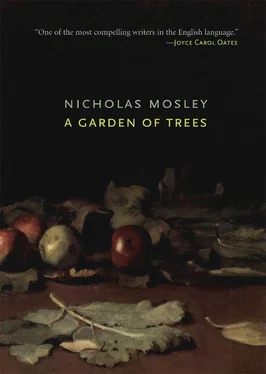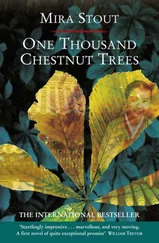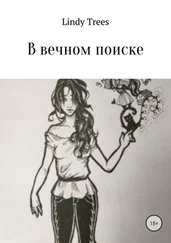“It is very kind of you,” I said.
“How nice you look,” she said. Her hand as it lay on top of mine was pointed and thin with long smooth nails, and two silver bracelets jutted up from her wrist like hoops. I wondered why when she stood up they did not fall off. Her arm against the table-cloth was white like wax.
“You look very nice too,” I said.
“Darling,” she said, “you don’t mean it, but still.”
“I do mean it, you know, but I can’t say it,” I said.
“Why can’t you say it?”
“Because it doesn’t sound right when I say it.”
“Darling, if you meant it it would.”
“It somehow doesn’t,” I said.
A waiter approached. He produced two menus the size of magazines. “I have ordered lunch,” Alice said. He flicked at the table languidly with a cloth. “And claret,” Alice said. “Can we please have it soon?” The waiter bowed to her and departed. “I hope you like claret,” Alice said to me.
“I do,” I said.
“I’m sure you really despise it, darling, but you should get to know about claret, you know.”
“Yes,” I said.
She took the skin on the back of my hand between her finger nails and gave it a pinch. It hurt considerably. I wanted to giggle, as I thought how funny it would be if I put my other hand on top of hers and we played the game of pulling the bottom hand out from underneath and slapping it back on the top of the pile. But I did not think that this suggestion would amuse her. I had to say something quickly, however, as the pain was becoming unbearable, so I said “Why is it, do you think, that we find it so difficult to talk to each other?”
“Darling I don’t know,” she said, stopping pinching.
“I mean, what do you like talking about with other people?”
“With whom?”
“With your friends, your real friends, as you once said.”
“Darling, we just talk.”
“You’re not going to get angry if I go on?”
“No,” she said, pleasantly, but taking her hand away from mine.
“Because, you see, you seem to talk about things that I could never say.”
“You’re so young, darling,” she said, and I was afraid that she was going to withdraw from me again.
“I don’t think it’s being young,” I said. “What is it that you want from people when you talk?”
“To be amusing, charming, gay, surely.”
“I don’t think I do, you see.”
“Why, what on earth do you want?”
“I don’t know,” I said.
“To be serious?” she sighed tremendously. “Darling, don’t you want ever to stop being serious?”
“I can’t ever begin,” I said.
“Now I think you are trying to be clever,” she said.
The waiter brought soup. Then the claret arrived and there was the ceremony of opening the bottle and tasting it. I had a momentary fear that Alice was going to send it back, but she didn’t. Her hesitation was only a successful ruse to impress the waiter. We sipped it appreciatively.
“I was wondering,” I said, “why is it that you and I mean different things by being serious and gay.”
“It really is being young, you know. I really can’t explain it.” For the first time since I had known her she appeared to be entirely serious.
“Do explain it,” I said.
“Well, you see, I think life just becomes a business when you are older.”
“But you surely still feel things? Unbusinesslike things, I mean?”
“Darling, what you feel hasn’t got much to do with life.”
“It has everything to do with it, surely. . ”
“Not life, not living it,” she said. We drank our soup while I thought this over.
“Then you are like me,” I said; —“what you feel you can’t express.”
“Good heavens, I’m not like you,” she said.
“But you see you are, because what you feel is different from what comes out, which is business.”
“Not very nice businesses come out of you darling,” she said.
“No, but that is the difficulty you see, to live what you feel.”
“You can’t,” she said. “Not possibly.”
“Why not?”
“Because you can’t.” She obstinately finished her soup.
“What can you live then?” I said.
“You can have fun, darling,” she said. “Have you ever thought of that?”
“I can’t have fun when I don’t feel like it. Why not make a business of what you feel?”
“It really isn’t so easy,” she said. She reached into her bag for a cigarette. “Besides, you don’t know anything about businesses, darling.”
“I think I am beginning to,” I said.
“Why?” she said.
“Because we have been talking for ten minutes without you getting angry. Isn’t that good business?”
“It’s because you have been so terribly gay, darling,” she said, with an enormous smile.
“So serious,” I said.
“But you see, your face is nice, which makes all the difference.”
“And it hasn’t been before?”
“No,” she said.
The soup was taken away and meat appeared. We waited while the vegetables were ladled out, and I was thinking what a success the lunch was, how we were enjoying it, and then Alice said in a casual voice, “What did you do after I had left you last night?”
“Last night?” I said. I remembered suddenly our rudeness to her, and my remorse. I wondered why it was that until now I had forgotten it; perhaps it had been Alice’s business to make me forget it — the business in which she was so practised and clever. So that it might have been that the success of the lunch had nothing to do with me at all, and then why had Alice wanted to remind me of my rudeness now?
“Yes,” Alice said. There was an awkwardness between us. She was looking out of the window and seemed to be waiting for something.
“I stayed with Marius for a while,” I said. I found that I did not want to tell her about Annabelle and Peter. We were both of us uneasy. “Do you know where Marius lives?” I said, remembering that this was something that I wanted to discover from her.
“No,” she said.
“But you must do, you got in touch with him last night.”
“Oh did I?” she said.
“Yes.”
“He is staying in Grosvenor Square, I believe, with some friends.”
“Oh,” I said. I had not imagined him as living there. “Do you know the friends?” I said.
“No,” she said.
“Marius isn’t. .?” I began.
“Isn’t what?”
“Nothing,” I said. For a moment, and for some inexplicable reason, I had wanted to ask if Marius was married to Annabelle. But knew that he wasn’t.
There was a silence. Alice’s heavy beautiful face looked unutterably sad. While I had been wondering about Marius I had not thought of what she might be wanting herself. As she looked out of the window I could see the reflections of the traffic in her eyes.
“Darling,” she said, “for God’s sake say something, can’t you tell me about last night?” She looked so tired.
“We went round to Grosvenor Square,” I said.
“Oh you did?”
“Yes. I can’t think why I didn’t tell you about that before.”
“That doesn’t matter does it?”
“What?”
“But what happened, darling?”—I could not quite discover what we were saying.
“Isn’t it strange to live in Grosvenor Square,” I said.
“Is it?”
“I mean I didn’t think anyone did now. . ” I said, and then I talked off, lost, and Alice went on staring out of the window with her heavy blue wax-work eyes.
We ate in silence. Plates were removed and fresh ones came, and I still did not know what Alice was wanting. I tried to talk of inconsequential things, but the sadness remained around us like damp and I could not deal with it. I remembered what Alice had once said about it being impossible to learn anything about people by talking to them, and I realized that this was at least true when applied to her. I could not ask her what she wanted, and I could not tell without asking what it was that made her sad or happy. I thought, perhaps, that I really knew nothing about her at all.
Читать дальше












